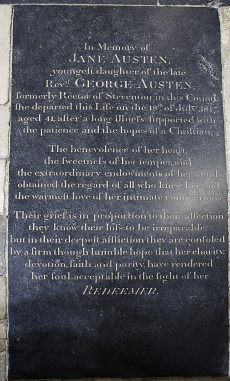
Emma Woodhouse, Harriet Smith and Jane Fairfax are highly different characters from Jane Austen’s novel Emma, first published in 1815. In the opening of the text Emma is described almost idyllically as ‘handsome, clever, and rich, with a comfortable home and happy disposition’, the asyndetic listing depicts a lexical field of an immaculate, luxurious lifestyle. It is completely antithetical to Jane Fairfax’s introduction, ‘Jane Fairfax was an orphan, the only child of Mrs Bates’s youngest daughter.’ From this tonally bleak and almost Dickensian sentence the reader is told that she is an outcast, ‘orphan’, she is isolated, ‘only child’, and even within her family tree she’s low on the list for inheritance. The context of these two characters is highly important to how they behave in the novel because Emma, who has no need for a husband due to her wealth, is more a romantic, whereas Jane Fairfax, who if she doesn’t get married will become a governess, is more of a realist.
This difference is shown when Emma attempts to obtain information from Jane Fairfax about the enigmatic Frank Churchill, ‘not a syllable of real information could Emma procure as to what he truly was.’ This cryptic and hyperbolic lexis reveals that Jane Fairfax is keeping her cards close to her chest as she tells Emma the formal trivia while concealing her opinion of Mr Churchill. This is because she knows Emma is a potential rival for Frank Churchill’s affections. But unlike Emma – who expects Jane Fairfax to entertain her curiosity, as to her courting is an optional preoccupation – Miss Fairfax needs to take ‘caution’ as to what she reveals because she needs to marry into wealth.
It is this fundamental difference between these two characters which results in this outcome, ‘Emma could never forgive her.’ The importance of this emotional climax in the chapter is emphasised by its repetition in the opening of the next chapter. This is the closest Emma gets to hatred of another person in the novel and one could interpret that she feels as much of a desire to marry Churchill as Jane Fairfax. However, this anger more plausibly results from Jane limiting Emma’s ability to manipulate relationships; hiding from her her inside knowledge about a character who has been shrouded in mystery. Emma is a nosey character, and loves – craves even, to know everything about everybody and so Jane Fairfax’s clear unwillingness to impart such information to her is seen as an unforgiveable crime by her.
Harriet, due to her background – which is similar in its levels of misfortune to Jane Fairfax’s – is a natural realist, as seen when she receives a proposal from Mr Martin, ‘You mean to return a favourable answer, I collect.’ The euphemism Emma employs reveals Harriet’s timid desire to accept Mr Martin as her suitor. This illustrates a pragmatic instinct in Harriet, as although she is not intelligent, she believes that Mr Martin is deserving of her hand. Although he is a farmer, she is even lower in the social hierarchy as she is probably illegitimate. It is only Emma’s irrational sense of romanticism that encourages a false sense of superiority in Harriet, since she wants Harriet to marry the more elegant and wealthy Mr Elton.
Image: WyrdLight.com [CC BY-SA 3.0 (http://creativecommons.org/licenses/by-sa/3.0) or CC BY-SA 3.0 (http://creativecommons.org/licenses/by-sa/3.0)], via Wikimedia Commons

0 Comment:
Be the first one to comment on this article.